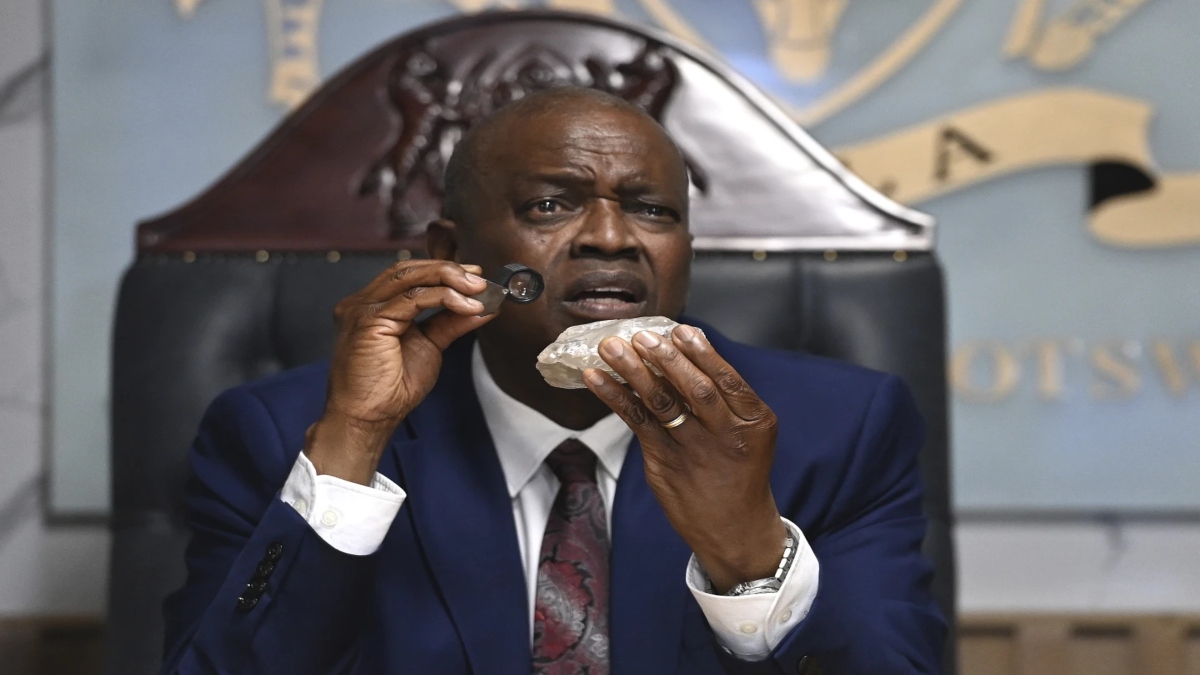Diamond-rich Botswana, which holds general elections on Wednesday, is one of Africa’s most prosperous countries, hailed for its stable democracy since independence in 1966.
Here is some background about the landlocked southern African nation of 2.6 million people.
Diamond-rich
Botswana is Africa’s biggest diamond producer and the second worldwide after Russia.
The stones are Botswana’s main source of income and account for about 30 per cent of its GDP and 80 per cent of its exports, according to the International Monetary Fund (IMF).
It is home to the world’s biggest diamond mine. Three of the world’s four largest diamonds were discovered there, the second in August 2024 and weighing half a kilo with 2,492 carats.
While mining revenues drive economic growth, they fluctuate according to demand and competition from lab-grown versions.
In 2023 growth fell to 2.7 per cent from 5.5 per cent in 2022, the IMF says.
Botswana also benefits from vast coal reserves, beef exports and high-end safari tourism. The UNESCO-listed Okavango Delta is a top luxury ecotourism destination.
It is the third least corrupt country in sub-Saharan Africa, according to the NGO Transparency International, after the Seychelles and Cape Verde.
But unequal
Botswana has a wide disparity between rich and poor.
Impact Shorts
More ShortsIts inequality level is listed as the 15th highest in the world, according to a 2022 World Bank report.
Three-fifths of financial assets are held by the richest 10 per cent, the report says.
There is a 24-per cent wage gap between men and women of the same education level. The jobless rate stood at more than 23 per cent in 2023 and has risen since.
Stable since 1966
On independence from Britain, Botswana installed a democratic, parliamentary regime.
It has always been governed by the same party, the Botswana Democratic Party (BDP) co-founded by the first president, Seretse Khama.
His son, former military chief Ian Khama, held power as the country’s fourth president between 2008 and 2018, when he was accused of being increasingly autocratic.
Barred from seeking a third term by the Constitution, Khama picked his vice president, Mokgweetsi Masisi, to replace him.
Masisi was elected in October 2019. Within months, friction developed between the two politicians and Khama has campaigned to unseat Masisi.
Largest elephant population
Much of Botswana is covered by the semi-arid Kalahari Desert and it suffers from severe drought.
It has the world’s largest elephant population, numbering more than 130,000. In 2019, under pressure from local communities, Masisi lifted a ban on elephant trophy hunting imposed five years earlier.
Progress on HIV/AIDS
AIDS is the country’s leading cause of death, according to the World Health Organization (WHO). Botswana has one of the world’s highest rates of HIV with more than 17 per cent of adults infected, according to UNAIDS.
In 2002, it pioneered the African rollout of free anti-retroviral treatments.
It is one of few countries to reach the UN’s 95-95-95 target on HIV: 95 per cent of people living with HIV know their status; 95 per cent of them are on life-saving anti-retroviral treatment; and 95 per cent of people on treatment achieve viral suppression and are therefore highly unlikely to infect others.
(Except the headline, this story has not been edited by Firstpost staff.)


)

)
)
)
)
)
)
)
)



